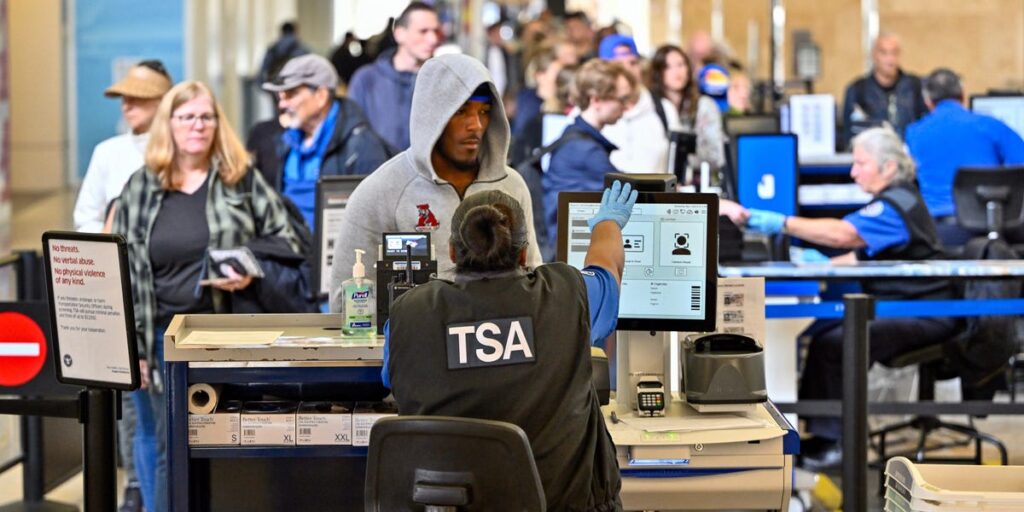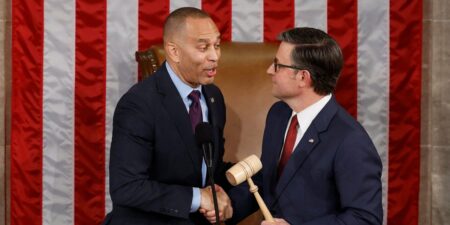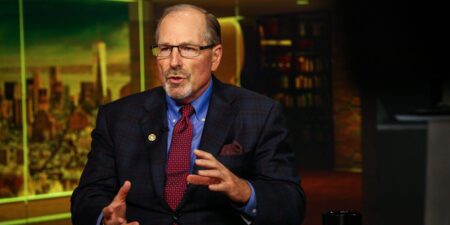For flyers, a government shutdown would result in nothing good.
Aviation groups across the country have expressed concerns about possible lapses in safety and stressful travel experiences for Americans if Congress fails to reach a last-minute solution to fund the federal government before midnight Wednesday.
Aviation experts told Business Insider that the most immediate concern for travelers is slightly longer security lines; however, long-term problems could include security employees walking off the job and shortages in air traffic control facilities.
Meanwhile, aviation groups, including workers’ unions and business associations, have expressed concerns about the risk of safety lapses if certain federal programs, such as air traffic equipment maintenance and safety event analysis, are temporarily halted.
Here’s what travelers should know.
Flyers should pack their patience
Airline trade group Airlines for America, which represents American Airlines, Delta Air Lines, United Airlines, and Southwest Airlines, said on Tuesday that possible staffing shortages at the Federal Aviation Administration, Customs and Border Protection, and the Transportation Security Administration may force the system ” to slow down, reducing efficiency.”
Atmosphere Research Group travel analyst Henry Harteveldt told Business Insider that this could result in flight disruptions and longer airport security lines because air traffic, passport control, and security employees may have restricted overtime hours, leading to fewer people working during peak hours.
Furthermore, these employees may be forced to work without pay, despite being deemed “essential,” and could ultimately stay home. Harteveldt said this is most likely to happen after two weeks into a government closure, when they would miss their first paycheck.
“It wouldn’t surprise me if we see an increase in TSA airport security staff leaving their jobs for other positions they consider to be more stable,” he said. “The TSA would have to backfill those positions after the shutdown, and the Thanksgiving holiday travel season begins in about seven weeks. The clock is ticking.”
John Rose, chief risk officer at the global travel management company Altour, told Business Insider that travelers should “brace for potential delays.”
“While airlines are expected to operate normally, since they staff their own check-in and baggage teams, government-run services could face disruptions,” he said. “If you have upcoming travel, especially internationally, allocate extra time for both departure and arrival. Long lines are nothing new, but during a shutdown, they could be significantly worse.”
He added that passport renewals and other government-handled travel processes may also be slowed.
Flying is safe, but aviation groups warn of possible lapses
For those worried about safety, the A4A trade group assured that aviation is the safest mode of transportation.
Still, it, along with dozens of other aviation groups, co-signed a letter to Congress on Monday, saying a shutdown could “degrade the redundancies and margins of safety that our National Airspace System (NAS) is built upon.”
It warned of a halt to billions of dollars’ worth of critical safety upgrade projects, which focus on reducing events like near-misses at airports and improving communication and efficiency technology in air traffic control centers.
It also said other federal functions, like safety analysis and aircraft inspections, may also be delayed.
With less than 12 hours left before a possible shutdown, many travelers may choose not to travel, especially as disruptions could ripple nationwide and compromise safety.
The US Travel Association said a recent survey found 60% of travelers would cancel or avoid air travel if a shutdown occurred, while 86% said a shutdown would inconvenience passengers.
Overall, the organization said a shutdown would cost the US travel industry $1 billion in weekly losses. Airlines, in particular, would feel the sting from people refunding tickets and choosing to defer travel — which would dampen revenues the longer the shutdown goes on.
The warnings have precedent
During the 2019 shutdown, when President Donald Trump was also in office, critical tasks, such as maintenance and repair work on safety systems, were stalled.
That year, the Air Line Pilots Association, a labor union now representing over 80,000 pilots, sent a letter to Trump warning that the lack of inspectors and regulators could affect safety.
Meanwhile, airport security workers and air traffic controllers left their jobs or stopped working during the 35-day shutdown that began in late 2018. Many TSA agents called in sick, possibly because some were working part-time jobs to earn extra money, Harteveldt told BI.
This caused security checkpoints to slow, and many airports were forced to reduce flying due to controller shortages — so much so that New York’s LaGuardia Airport had to temporarily halt operations. Other airports, such as Atlanta and Philadelphia, also faced major disruptions.
Keeping up with air traffic control staffing is a particular concern as the industry already tackles an ongoing shortage of about 3,000 controllers, which has led to a reduction in flying at places like Newark Liberty International Airport in New Jersey.
The aviation groups’ letter warned of a possible ATC hiring and training freeze. This could exacerbate the already-strained agency and lead to further reduced flying even after the shutdown ends.
Read the full article here
















